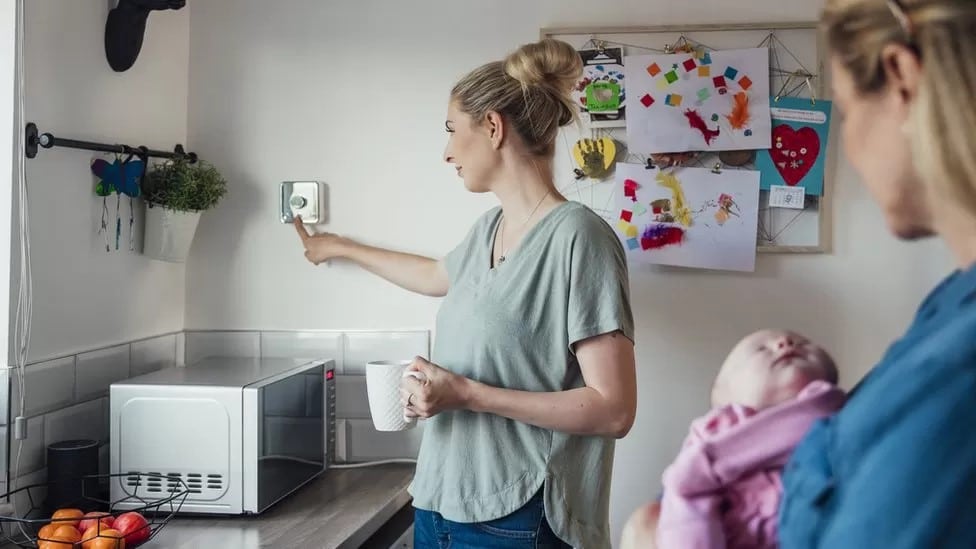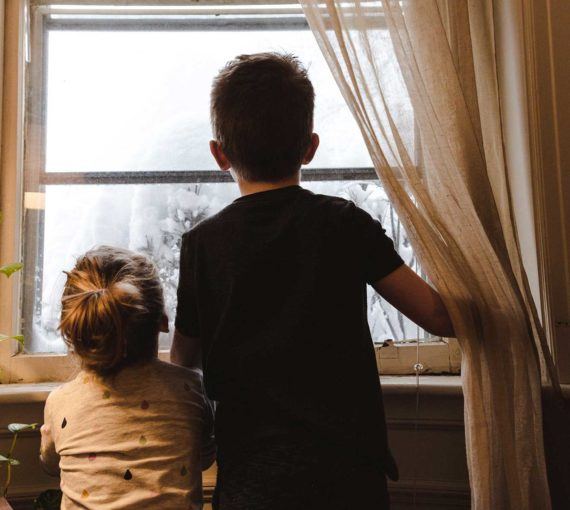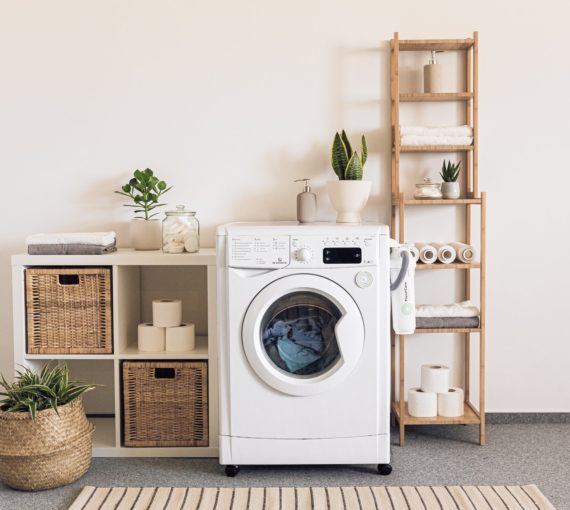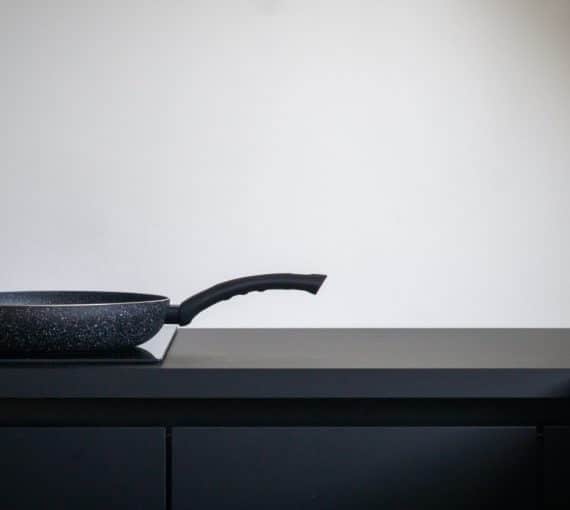
According to Natural Resources Canada, an ENERGY STAR–certified connected thermostat can save you at least eight per cent in energy use.
The most important thing you can do to make your home more climate-friendly is to get fossil fuels out of it. To reduce greenhouse gas emissions and avoid the worst impacts of climate change, we need to swap those for clean electricity.
If you can’t manage big changes now or your landlord isn’t ready to switch, don’t worry. You can still make your home more climate- and wallet-friendly by making it as energy efficient as possible.
Simply put, energy efficiency means using less to perform the same task or produce the same result.
In Canada, homeowners are eligible for federal grants (sometimes provincial grants too) for making energy-efficient home retrofits. Research what’s available before starting any big projects.

Energy affordability in Canada
Green home improvements are out of reach for many people in Canada. In fact, one in 10 households spends more than 10 per cent of their income on energy bills alone. Energy poverty has become a real concern.
Our report, “Keeping the Lights On: Ensuring energy affordability, equity and access in the transition to clean electricity in Canada,” explores how we can address and mitigate energy poverty in the clean energy transition.
Six tips to make your home more energy efficient
1. Improve insulation and sealing
Windows and doors can account for up to 25 per cent of total home heat loss. If they aren’t properly sealed, warm air can escape and cool air can enter.
Repair improperly sealed windows with caulking and weatherstripping or by fixing hardware like latches and locks. Sometimes it’s best to replace the window with a new, energy-efficient model. The same applies to doors — if they don’t fit snugly, consider caulking, weatherstripping or replacing the doors and/or frames.
Upgrading your insulation is another cost-effective way to make your home more energy efficient and more comfortable.
Options for renters
- Speak to your landlord about improperly sealed doors and windows, or if you suspect insulation needs upgrading.

How to stay warm indoors in winter
People from coast to coast to coast in Canada know cold weather. Before cranking up the heat and your heating bill, try these inexpensive, easy ways to cut energy demand and save a few bucks.
2. Get a smart thermostat
A smart thermostat is a Wi-Fi enabled device that automatically adjusts temperature settings. Many can detect whether people are in the house, either via motion sensors or by checking smartphone location. When the house is empty, it switches to energy-saving mode until you return.
According to Natural Resources Canada, an ENERGY STAR–certified connected thermostat can save you at least eight per cent in energy use.
Options for renters
- Discuss the benefits of a smart thermostat with your landlord. Mention available rebates.

How to cool your home in summer
Summer heat can warm homes significantly. Try these simple tips to stay cool and save on your energy bill.
3. Invest in energy-efficient appliances
Replace old appliances with energy-efficient models (look for the ENERGY STAR logo).
An ENERGY STAR–certified clothes washer can save 25 per cent energy and use 33 per cent less water than a standard model. ENERGY STAR–certified ceiling fans use 60 per cent less energy than standard models. And an ENERGY STAR range hood uses 50 per cent less energy than a standard one.
An induction stove is far more energy efficient than a traditional electric or gas stove. It transfers heat to your food with 85 per cent efficiency, compared to 32 per cent for a gas stove.
Drop off your end-of-life appliances at a recycling facility that accepts them or purchase new ones from a retailer with a recycling program that will collect your old ones. Appliances that aren’t disposed of properly may release ozone-depleting substances, greenhouse gases like methane and carbon dioxide or other hazardous toxics.
Options for renters
- Talk to your landlord about energy-efficient appliances, especially if yours need replacing. Again, rebates are available.
4. Wash laundry in cold water and hang to dry
Most laundry washing energy consumption comes from heating the water, so wash in cold.
Dryers are notoriously energy inefficient. The older your model, the longer it may take to dry your stuff, increasing the amount of energy used. Air dry whenever possible. If you must use the dryer, keep the lint screen and dryer duct clean, and toss in a few wool dryer balls to help agitate heavier items.
Consider upgrading to a heat pump dryer, which can reduce your energy use by at least 28 per cent compared to a standard dryer. Because it dries your laundry at a low temperature, it’s gentler on your clothes too.
Options for renters
- If you use coin-operated laundry machines, you’ll save a few bucks by not using the dryer.

Use Earth-friendly laundry soap
Common laundry detergents are full of toxic chemicals harmful to you and the environment. Learn how to make your own Earth-friendly laundry soap and find out what to look for in store-bought products.
5. Swap incandescent lightbulbs for LEDs
Swap your incandescent lightbulbs for energy-efficient light-emitting diode bulbs that create a lot of light using little energy. ENERGY STAR–certified LEDs are up to 90 per cent more efficient than incandescent bulbs and last at least 15 times longer.
Look for the lumens value to find out how bright a bulb will be: the higher the lumens, the brighter the light. (A watt is a unit of power that measures the amount of energy a bulb needs to operate.)
Properly recycle old bulbs.
Options for renters
- These days, there are LED bulbs for every space in your home.
6. Unplug rarely used devices
Unplug computers, TVs and other electronics when you’re not using them. And before you go away on vacation, unplug all the devices you can.
Options for renters
- Another accessible choice.


